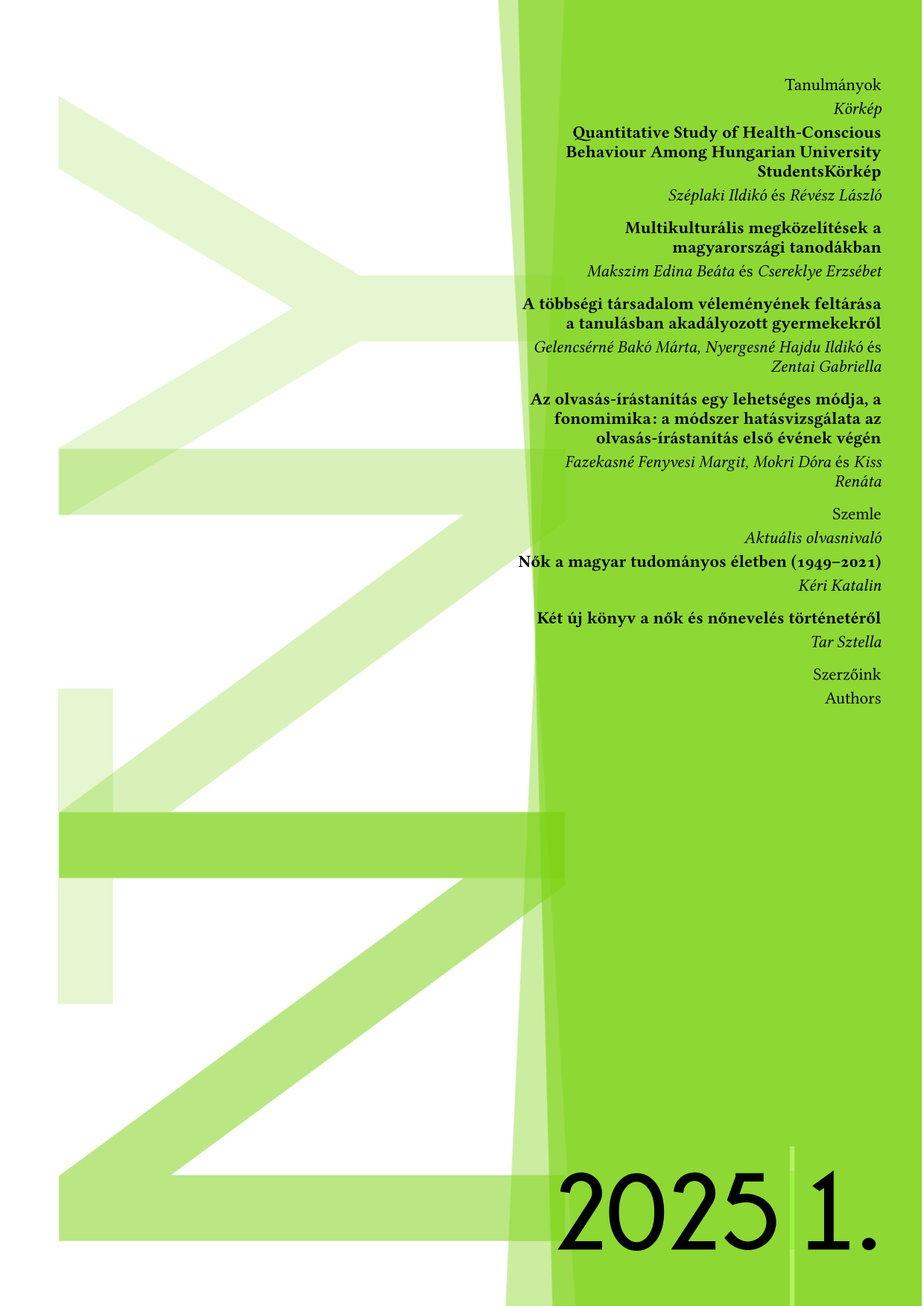Abstract
For decades, the research on the issues of acceptance, inclusion and equal treatment has been a prominent focus of educational research, both in mainstream and special education. Research is less concerned with the attitude of the majority society towards people living with disabilities. How social attitudes are formed depends to a large extent on the spirit of the times, the values and ethical foundations of society, and the ideal of man of the time. In our study, we present the results of a questionnaire survey of 348 adults from the majority society about their views and acceptance of children with learning disabilities. The aim of the research is to find out whether, based on the knowledge of the respondents and their answers, it is possible to suggest whether there are effective sensitizing opportunities for the group of children with learning disabilities, and which of these opportunities and areas are successful or less successful in the development, progress and involvement of the pupils concerned. The analyses show that the respondents are accepting and helpful towards children they perceive as learning disabled, based on their information and experience, but their knowledge is incomplete and inaccurate, which can make successful social inclusion difficult. Taking into account the opinions of the participants in the research, summarising them and analysing the scientific works, we see the need for an interdisciplinary approach to the topic and the solution of its problems. The results of the study call the attention of the special education/pedagogical practice to the authentic and objective information of the majority society, to the sensitization, to the specialized information of the parent groups and communities, which helps and supports equal opportunities, social inclusion and successful social participation.
